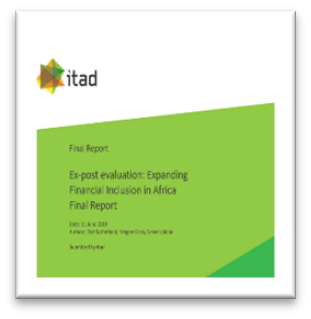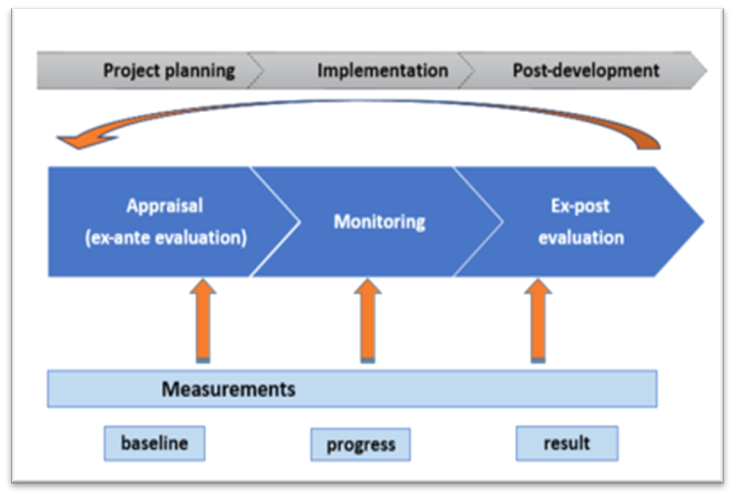

Ex-Post/Summative Evaluations
November 30, -0001, Evaluation Observatory

The Government started a Mid-Day meal program for children in class I to VIII to reduce child malnutrition. How successfully has the program been in increasing the height and weight of students? Has there been an increase in the haemoglobin levels? Should funding to the program continue over the next five years? Should it be expanded to students in classes IX to XII?
An Ex-Post evaluation may help answer these questions.
Briefly, an ex-post evaluation is an assessment done after the completion of the project to examine whether the intended project outcomes have been achieved or not, providing information on the project’s effectiveness. It is a useful tool in helping policy makers and program managers in deciding whether to continue or end a given project.
An Ex-Post Evaluation emphasises critical thinking, judgement and common sense rather than the mastering of sophisticated evaluation tools (European Union, 2018, p.3).
List of recommended resources:
For a broad overview

-
Developed by the OECD, this reference guide explains the concepts and issues associated with Ex-Post Evaluations, using numerous examples. It is written for competition authorities, who are planning to start performing expost evaluations and for those who might want to enhance the quality of their assessment.

-
Prepared by T. Draskovics, Chapter III of this resource talks about Ex-Post Evaluations – planning, types and the steps involved. It also guides practitioners on holding consultations with stakeholders.
For in depth understanding

-
Developed by the Government of the Republic of Kosovo, this resource has in-depth discussions on rationale and methodology for Ex-Post Evaluation.
Case Study

-
Published by ITAD, this resource describes the findings of the financial inclusion program in Africa, and includes a detail of the background of the project, questionnaire tools, and methodologies employed in the ex-post assessment of the intervention.

-
From Impact for Research in the South (impress), this resource illustrates the utility of the ex-post Evaluation method for agricultural research in developing countries.

-
Published by InterAction, this video presents approach to ex-post evaluations and using a case-based approach to illustrate the challenges faced and solutions adopted by World Vision in their projects.

-
tad has published this article shares lessons learned from an ex-post evaluation of Catholic Relief Services’ (CRS) Expanding Financial Inclusion (EFI) programme.
Toolkits

-
This website provides practitioners with a brief description of Summative evaluation, along with a brief hands-on guide of the use of both quantitative and qualitative tools.

-
Developed by Ricardo Energy and environment, this resource provides guidelines for collecting evidence and analysing data for ex-post evaluations.
You may also like

Big Data: An Introduction and Application in the Social Sector
August 30, 2021

Building an Evaluation Ecosystem: Perspectives from Evaluation Associations - Key Takeaways from the Webinars
August 30, 2021

GENSA Celebrates One Year, and Keynote by Katherine Hay
August 30, 2021



